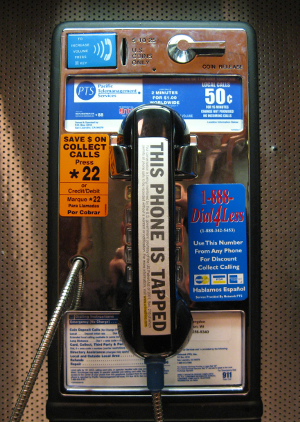Metadata study infers severe invasion possible
 An experiment has shown just how much can be gleaned from metadata, and why it should not be released too freely.
An experiment has shown just how much can be gleaned from metadata, and why it should not be released too freely.
With recent calls from Australian police for more access to metadata harvested from mobile phone activities around the country, the new study stands as a poignant reminder that there is plenty of information in seemingly innocuous data.
Using nothing more than the timing and destination of phone calls, Stanford University researchers say they were shocked how much can be inferred.
The experiment saw 546 volunteers install an app called “MetaPhone”, which gathered information about who they called, combined with content from their public Facebook profiles.
The study identified a cannabis cultivator, a multiple sclerosis sufferer, a visitor to an abortion clinic and several details many people would want to keep private.
“One of the things which is most concerning about the privacy properties we've uncovered is how easy it is to make inferences about the metadata on a large scale,” researcher Jonathon Mayer said.
“We had a participant who... had calls with a lumber yard and a locksmith and a hydroponics dealer and a bong shop.
“[You] don't need a PHD in computer science to have some sense of what could be going on there.
“During our analysis, we encountered a number of patterns that were highly indicative of sensitive activities or traits,” he said.
The findings were so revealing that the researchers chose not to follow up with the participants, fearing their attempts to confirm the inferences would be too deep an invasion of privacy.
“Participants had calls with Alcoholics Anonymous, gun stores, NARAL Pro-Choice, labor unions, divorce lawyers, sexually transmitted disease clinics, a Canadian import pharmacy, strip clubs, and much more,” the researchers write.
“This was not a hypothetical parade of horribles. These were simple inferences, about real phone users, that could trivially be made on a large scale.”
The researchers say the data gathered is identical to the kinds of information government spy agencies routinely harvest.
“This is the reality of telephone metadata, it's very sensitive and the policy, debate needs to proceed from that premise.”
Australian Federal Police (AFP) assistant commissioner Tim Morris recently downplayed the power of metadata while trying to explain a push for lower legal restriction on the ways police can use the data they gather.
“This is not data that [is the] content of conversations or content of SMS's or contents of emails; that's covered under separate legislation under the telecommunications interception access act,” Morris told the ABC.
“What we're talking about here is the indicative communications data; the time of the call, the length of the call and who the call was made to.
“As a result, there's a lower threshold for police to obtain that basic data.”








 Print
Print